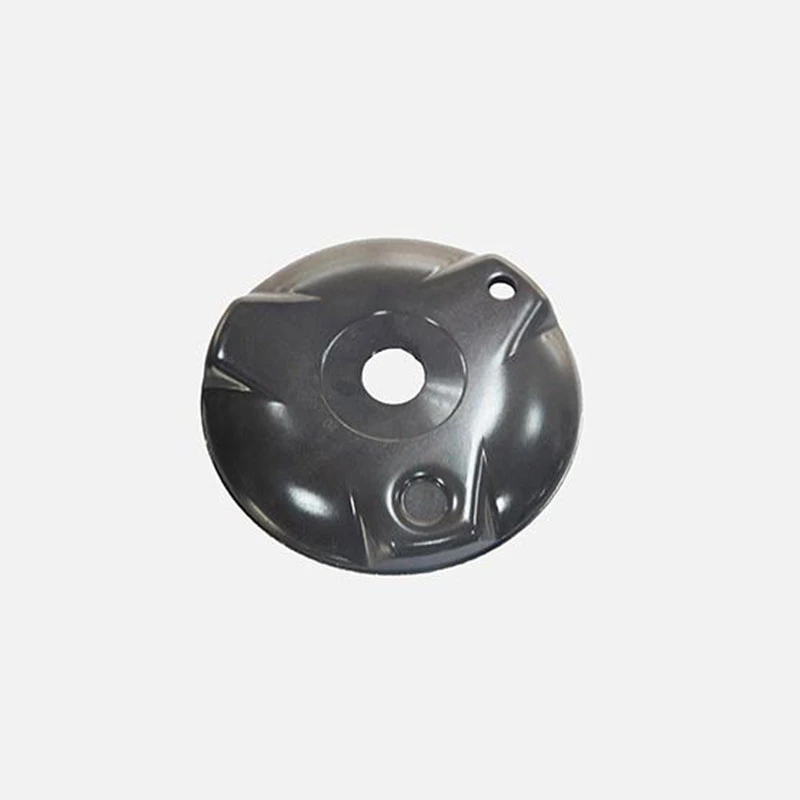Exploring the Fundamentals of Machining Processes and Techniques for Precision Manufacturing
Understanding Machining Operations An Essential Component of Modern Manufacturing
In the world of manufacturing, machining operations represent a fundamental process crucial for the production of precise components. Machining involves removing material from a workpiece to achieve desired dimensions and surface finishes. This comprehensive article explores various machining operations, their significance, and emerging technologies within the industry.
Types of Machining Operations
Machining operations can be broadly classified into several categories, including turning, milling, drilling, grinding, and electrical discharge machining (EDM). Each of these methods utilizes different tools and techniques suited for specific applications.
1. Turning This process revolves around rotating the workpiece while a stationary cutting tool removes material. Typically performed on a lathe, turning is ideal for producing cylindrical parts such as shafts and bushings. The precision achieved during turning makes it a popular choice in industries ranging from automotive to aerospace.
2. Milling In contrast to turning, milling involves rotating the cutting tool to remove material from a stationary workpiece. A milling machine can perform various tasks, including producing flat surfaces, grooves, and intricate shapes. The versatility of milling makes it indispensable in producing complex components.
3. Drilling This operation focuses on creating cylindrical holes in a workpiece using a rotating drill bit. Drilling is often accompanied by additional operations such as reaming or tapping to enhance hole size or create threads. This operation is prevalent in various sectors, including construction, engineering, and automotive manufacturing.
4. Grinding Grinding is a finishing process used to achieve a high-quality surface finish and precise dimensions. With the aid of an abrasive wheel, grinding can refine the surface of a workpiece made from hard materials, ensuring that the final product meets stringent specifications.
5. Electrical Discharge Machining (EDM) EDM is an advanced machining technique that utilizes electrical discharges to erode material from a conductive workpiece. This method is particularly effective for producing intricate shapes, especially in hard metals where traditional cutting methods are ineffective.
machining operation

The Importance of Machining Operations
Machining operations are vital for several reasons. They ensure that components are manufactured to precise tolerances, which is crucial for their functionality and longevity. The automotive and aerospace industries, for instance, rely on machined parts to perform safely and effectively under various conditions.
Moreover, machining allows for the production of complex geometries that would be impossible to achieve with traditional manufacturing methods. This capability supports innovation in design and allows industries to create custom parts tailored to specific applications.
Technological Advancements in Machining
The landscape of machining operations continues to evolve, largely driven by technological advancements. Computer Numerical Control (CNC) machining has transformed the industry by enabling high precision and repeatability. CNC machines are programmed to perform complex operations automatically, significantly increasing efficiency and productivity.
Additionally, the integration of additive manufacturing techniques with machining operations is noteworthy. Hybrid machines that combine 3D printing with traditional machining allow manufacturers to produce intricate components more efficiently, reducing waste and production time.
The advent of Industry 4.0 is also influencing machining operations. The use of sensors, IoT devices, and data analytics provides real-time insights into machine performance, enabling predictive maintenance and optimizing production processes.
Conclusion
In conclusion, machining operations are a cornerstone of modern manufacturing, providing essential capabilities for producing high-quality, precise components across various industries. Understanding the different types of machining operations, their importance, and the latest technological advancements is critical for anyone involved in manufacturing. As the industry continues to innovate, machining will remain integral to achieving efficiency, precision, and customization in an ever-evolving marketplace.
-
Precision Casting AI Solution with GPT-4-Turbo | Optimized QualityNewsAug.02,2025
-
Precision Sheet Metal Stamping Manufacturer | Fast & ReliableNewsAug.01,2025
-
OEM Sand Cast Pump Valve Fittings - Baoding Hairun Machinery And Equipment Trading Co., Ltd.NewsAug.01,2025
-
Custom OEM Impellers | High Efficiency & PrecisionNewsAug.01,2025
-
OEM Sand Cast Pump Valve Fittings - Baoding Hairun Machinery | Customization, Quality AssuranceNewsAug.01,2025
-
OEM Sand Cast Pump Valve Fittings - Baoding Hairun Machinery And Equipment Trading Co., Ltd.NewsAug.01,2025















